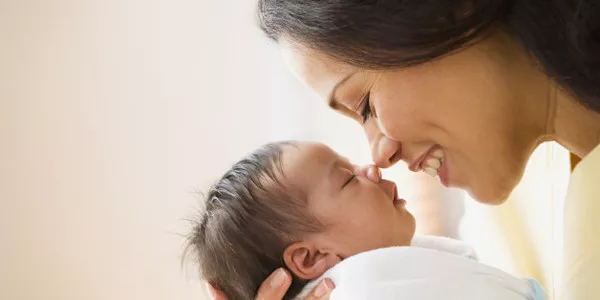Burping your newborn is an essential part of feeding and keeping them comfortable. But how many times should your baby burp during and after a feeding? Today, we will explore the importance of burping, when to burp, and how often to burp your newborn to ensure they are happy, healthy, and comfortable.
Why Is Burping Important for Newborns?
Newborns have immature digestive systems, which means they may have difficulty burping on their own. Burping helps to release any air that your baby may have swallowed while feeding. If this air is not released, it can lead to discomfort, gas, and even colic. Burping also helps to prevent spitting up or vomiting, which can occur if your baby has too much air in their stomach.
When Should You Burp Your Newborn?
It is generally recommended that you burp your newborn during and after each feeding. This is especially important if you are bottle-feeding, as bottle-fed babies tend to swallow more air than breastfed babies. However, even breastfed babies can benefit from burping as they may still swallow air while feeding.
To determine when to burp your baby during a feeding, look for signs of discomfort or fussiness. Some babies may squirm or arch their backs, while others may simply seem restless or uncomfortable. These may be signs that your baby needs to be burped.
After feeding, it is important to burp your baby to help them release any remaining air in their stomach. You should also burp your baby if they fall asleep during feeding, as they may not have had the chance to release all the air they swallowed.
How Often Should Your Newborn Burp?
Newborn babies need to be burped frequently during and after feedings to prevent gas and discomfort. However, the frequency of burping can vary depending on the individual baby and feeding method. As a general rule of thumb, most newborns should be burped at least once during a feeding and then again after the feeding is finished. Here are some factors to consider when determining how often to burp your newborn:
- Feeding method:
If you are breastfeeding, your baby may not need to be burped as often since breast milk tends to be easier to digest. However, if you are bottle-feeding, your baby may need to be burped more frequently since they may be swallowing more air while feeding. It is important to note that every baby is different, so it is important to observe your baby’s behavior and adjust accordingly.
- Age:
Younger newborns may need to be burped more frequently since they have not yet developed strong muscles in their digestive system. As your baby gets older and their digestive system matures, they may be able to go longer periods of time between burps.
- Feeding schedule:
If you are feeding your newborn smaller, more frequent meals, they may not need to be burped as often since they are taking in less air with each feeding. However, if you are feeding your baby larger meals, they may need to be burped more frequently to prevent gas and discomfort.
- Signs of discomfort:
If your baby is showing signs of discomfort during or after a feeding, such as fussiness, squirming, or pulling away from the breast or bottle, they may need to be burped more frequently. It is important to pay attention to your baby’s behavior and respond accordingly.
As a general guideline, you should try to burp your newborn at least once during a feeding and then again after the feeding is finished. If your baby seems uncomfortable or gassy, you may need to burp them more frequently. It is important to be gentle when burping your newborn and to support their head and neck. You can try different burping positions, such as holding your baby upright against your chest or over your shoulder, to see what works best for your baby.
How to Burp Your Newborn
There are several ways to burp your newborn, but here are three of the most common:
Over-the-shoulder: Hold your baby upright with their chin resting on your shoulder. Gently pat or rub their back until they burp.
Sitting up: Sit your baby upright on your lap and support their chest and head with your hand. Gently pat or rub their back until they burp.
Laying down: Lay your baby on their stomach on your lap or on a soft surface. Gently pat or rub their back until they burp.
Tips for Effective Burping
Here are some tips for effective burping:
Hold your baby upright: Place your baby on your lap or against your chest, holding them upright with their head on your shoulder. Supporting their chin and chest with one hand and patting their back with the other.
Gently pat your baby’s back: Use a gentle patting motion on your baby’s back rather than a hard slap. Patting too hard can hurt your baby.
Try different positions: If your baby is not burping after a few minutes, try changing positions. You can also try laying your baby on their tummy and rubbing their back.
Be patient: Some babies take longer to burp than others. Be patient and keep trying.
In conclusion, burping is an important part of feeding and keeping your newborn comfortable. By understanding when and how often to burp, as well as some different techniques, you can help prevent discomfort, gas, and colic in your little one. Always remember to be patient, gentle, and attentive to your baby’s needs.


